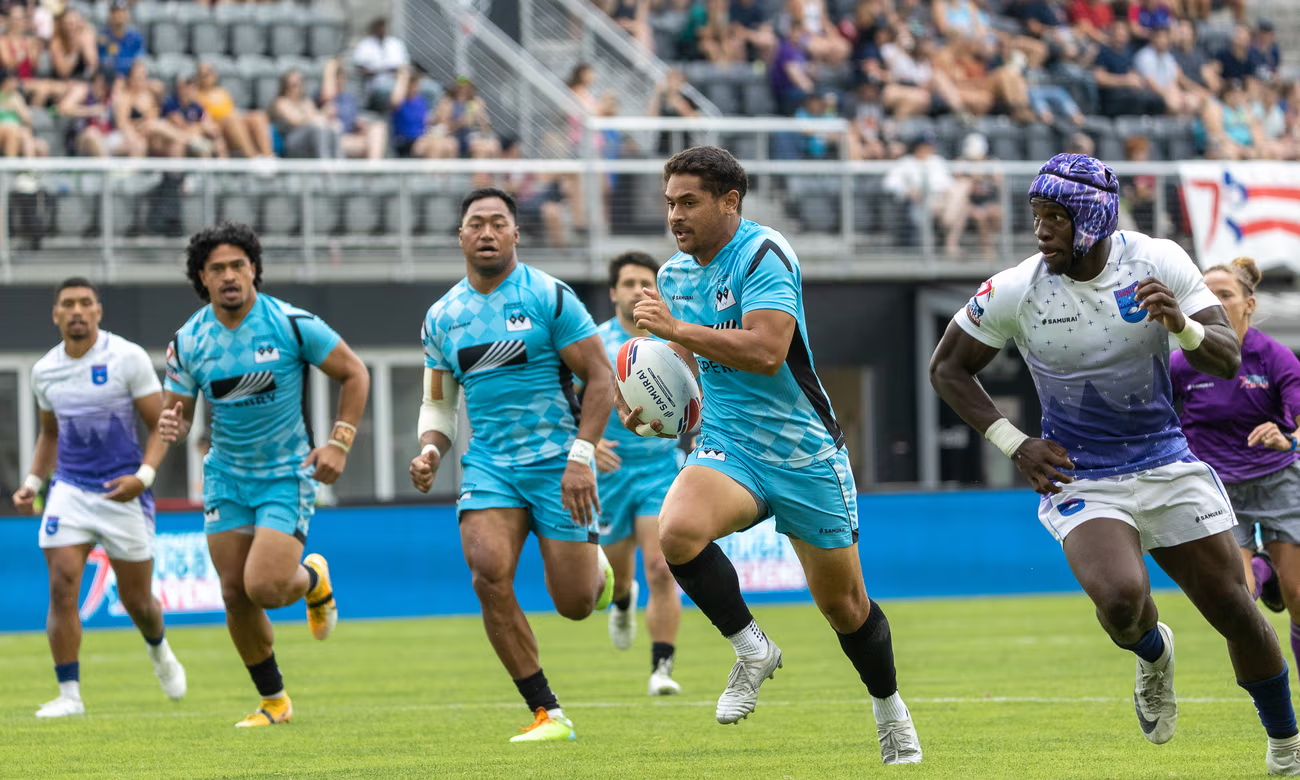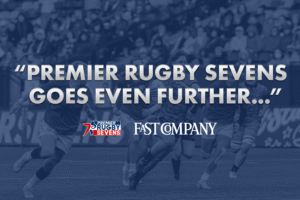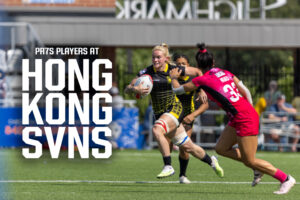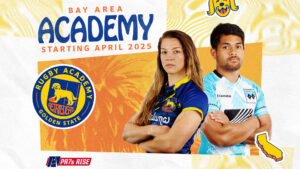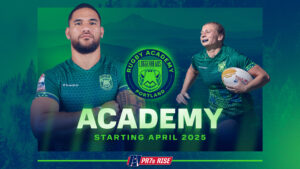Written By: Martin Pengelly
Source: The Guardian
In May, World Rugby announced that the US will host the men’s Rugby World Cup in 2031 and the women two years later. The news started the clock on a decade-long project to establish rugby union as an American sport.
Four months on, on the eve of a women’s World Cup in New Zealand, to say all is not well in US rugby would be like saying all is not dry in the ocean.
In 15s, the men’s Eagles have not yet qualified for France 2023 while the women beat Scotland in a World Cup warm-up but then shipped 52 points to England. At home, Major League Rugby, the men’s pro league, faces uncertainty over teams in LA and Austin, both disqualified amid board-level dispute last season. The MLR champions, Rugby New York, parted company with coach Marty Veale.
In sevens, the World Cup in South Africa last week returned a disappointing result for the US men, who finished 11th, though the women came in fourth.
Talk to Owen Scannell, however, and can-do spirit abounds. A player at Dartmouth College who worked for the New England Free Jacks in MLR, he is now chief of his own start-up, Premier Rugby Sevens.
PR7s is a professional competition in which men and women compete over a series of tournaments for the same ultimate trophy. After a pilot event in Memphis in 2021 San Jose, Washington DC and Austin hosted events this summer. Scannell declares himself “really happy” with how it all played out.
“From an in-person audience to what we had from a streaming audience, a lot of what we’ve been doing is about growing the audience for rugby. I think we’re starting to really see that happen.”
PR7s has statistics to tout: “716% increase in ticketing, 355% increase in sponsorship, over 1.6 million minutes watched on Fubo Sports Network, 18.54% average engagement across PR7s Instagram accounts (an average brand engagement rate on Instagram is 1.9%), 95.6% average cross-platform social media growth (Instagram, Facebook, Twitter, LinkedIn, YouTube, TikTok)”.
Game-day crowds, Scannell says, were “in the couple of thousands at each event”. At Audi Field in DC or PayPal Park in San Jose, PR7s faced the same problem MLR did at the Red Bull Arena in New Jersey for its final in June: how to make a small crowd look good on TV.
The simple way, as MLR showed for New York’s win over Seattle, is to put everyone opposite the camera. But in San Jose, for a day-long event, Scannell couldn’t do that.
“The far sideline seats are all in the sun. So everybody bakes for the first six hours of the day and nobody wants to sit there. But you can’t put the camera on the other side because of the radio frequency with the airport. So there’s no real way to shoot it to make it look good.
“But if you were in the stadium, the vibe was so great. We had the DJ, we had music, inflatables, a big bar area at one end of the field and kids playing with rugby balls in a little grass patch there. The festival atmosphere was phenomenal.”
And in keeping with sevens worldwide. The shortened game originated in the Scottish borders 140 years ago as an end-of-season jamboree, tournaments from morning to dusk, endurance part of the challenge.
Scannell says PR7s can endure, particularly as a rare rugby property that seeks to treat men and women the same.
“One of the coolest things we saw this year was a lot of the men’s and women’s teams engaging with each other, saying, ‘Hey, you’re a Headliner, I’m a Headliner. We’re friends, we’re competing to win.”
There are four teams in each PR7s draw, named generically rather than for location given the nature of the project, a traveling show from town to town. This summer, the Headliners outran the Loggerheads, Loonies and Experts. The champions were led on the women’s side by Abby Gustaitis, a US Olympian, and the New Zealander Grace Kukutai. Devin Short and Brady Rush, son of the great Eric Rush and an All Blacks Sevens player, led the Headliners’ men.
Scannel says: “When the women’s Headliners won in DC, all the men’s Headliners ran onto the field to join them in celebration. It was such a cool moment for equity in sports.”
He also lays out how PR7s athletes are paid.
“PR7s has equal tiers of pay and prize money allocated between male and female players based on previous professional experience and history, and an equal aggregate amount of compensation between the men’s and women’s programs.
“Equity between our female and male athletes has been at the core of our competition and company far beyond pay.”
In the fractured landscape of American rugby, little is ever straightforward. US Olympians including Perry Baker (twice world player of the year) and Alev Kelter played PR7s in 2021 but this year focused on the world series and World Cups.
The question of how PR7s should help US national teams is as tricky as the question of whether MLR exists to strengthen the men’s Eagles XV. (Some in MLR think, as a private business, it does not.)
To Scannell, “it’s always challenging. When you look at the World Cup sevens, World Cup 15s and Olympic sevens, the biggest challenge is when do you play? How can we fit into the calendar?
“There are a lot of discussions and things we can do to make sure we are aligning with the global sevens circuit and are really additive to the broader ecosystem of rugby and sevens worldwide. That would probably be one of the biggest working points for us.”
He also points to players who have earned US caps after PR7s, “Aaron Cummings and D’Montae Noble on the men’s side and Sarah Levy on the women’s”, and says all is not doom and gloom in Eagles sevens, given “the women finished fourth in Cape Town, in the medal rounds, which is where we want to be”.
Another complicating factor in the life of PR7s has not yet come to pass: what happens if MLR decides to try its hand. Notionally, MLR sevens would give the likes of the Houston SaberCats and the Free Jacks, with their own stadiums, a chance to make some money.
Scannell says: “We’ve had a very positive working relationship with Major League Rugby, from players featuring in both competitions to working collaboratively to promote events in the Austin and DC markets with the Gilgronis and Old Glory.
“We hope to continue working with them collaboratively to grow the profile of rugby in the United States, to find more fans in a positive and constructive manner.”
